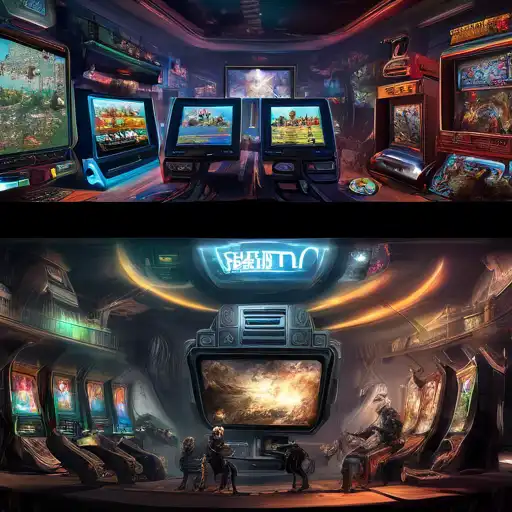The Revolutionary Journey of Gaming Technology in Modern Entertainment
Gaming technology has undergone a remarkable transformation over the years, evolving from simple pixelated screens to immersive virtual realities. This evolution has not only changed the way we play but also how we interact with digital content, making gaming a cornerstone of modern entertainment.
The Early Days of Gaming
The journey began in the 1970s with arcade games like Pong and Space Invaders, which introduced the world to the concept of digital entertainment. These games, though simple by today's standards, laid the foundation for the gaming industry, sparking a revolution that would grow exponentially in the decades to follow.
The Rise of Home Consoles
By the 1980s and 1990s, home consoles like the Nintendo Entertainment System (NES) and Sega Genesis brought gaming into living rooms around the globe. This era saw the introduction of iconic characters such as Mario and Sonic, who became cultural icons and expanded the appeal of gaming to a broader audience.
The Digital Age and Online Gaming
The advent of the internet in the late 1990s and early 2000s marked a significant turning point. Online gaming platforms enabled players to connect and compete with others worldwide, fostering a sense of community and competition that was previously unimaginable. Games like World of Warcraft and Counter-Strike became phenomena, demonstrating the potential of gaming as a social platform.
The Era of Mobile and Virtual Reality
Today, gaming technology continues to break boundaries with the rise of mobile gaming and virtual reality (VR). Smartphones have made gaming more accessible than ever, while VR headsets offer immersive experiences that blur the line between the virtual and real worlds. Innovations like augmented reality (AR) games, such as Pokémon GO, have further expanded the possibilities, integrating gaming into our daily lives in unprecedented ways.
The Future of Gaming Technology
As we look to the future, technologies like artificial intelligence (AI), cloud gaming, and 5G are set to redefine the gaming landscape once again. These advancements promise to deliver even more personalized and immersive gaming experiences, ensuring that gaming remains at the forefront of entertainment innovation.
Gaming technology has come a long way from its humble beginnings, evolving into a multi-billion-dollar industry that influences culture, technology, and entertainment. As we continue to witness its growth, one thing is clear: the evolution of gaming technology is far from over, and its impact on entertainment will only deepen in the years to come.
Why Gaming Technology Matters
Beyond entertainment, gaming technology has applications in education, healthcare, and professional training, demonstrating its versatility and potential to effect positive change. From enhancing learning through gamification to providing therapeutic benefits, the implications of gaming technology extend far beyond the screen.
In conclusion, the evolution of gaming technology is a testament to human creativity and innovation. As we embrace new technologies and explore uncharted territories, the future of gaming promises to be as exciting as its past. For gamers and non-gamers alike, the journey of gaming technology is a fascinating glimpse into the future of entertainment.
